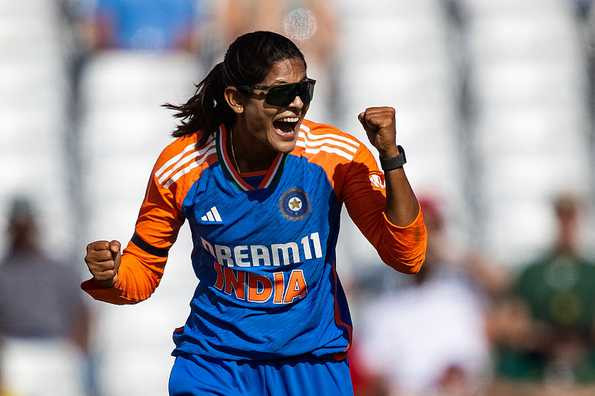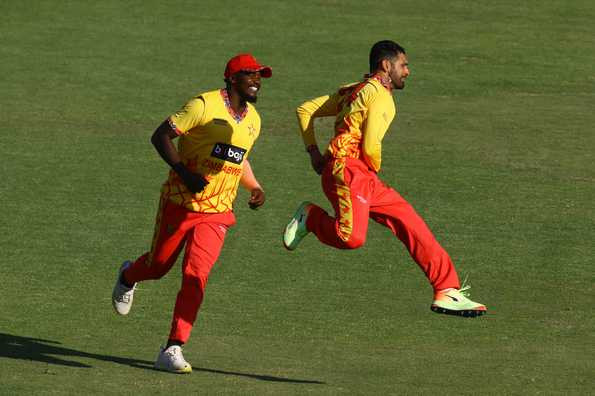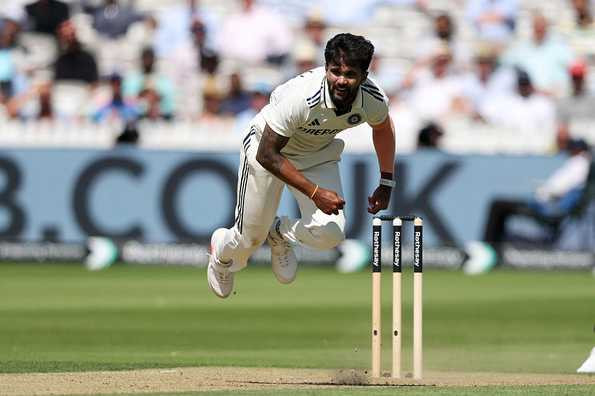
In the heart of Sydney, with dark clouds gathering and lightning slicing through the sky, cricket fans witnessed what can only be described as a defensive masterpiece that defied T20 convention. The Sydney Thunder’s improbable 21-run victory over Melbourne Stars on January 22, 2025, wasn’t just another Big Bash League knockout match – it was a compelling narrative about cricket intelligence triumphing over raw power, strategy overwhelming talent, and patience conquering impulse.
Oliver Davies, remarkably composed amid mounting pressure, crafted a patient 36 off 35 balls when the cricket playbook screamed for aggression. His innings, punctuated by just two boundaries and a solitary six, provided the sturdy backbone for Thunder’s modest total. “Sometimes you have to read the pitch, not the situation,” Davies later explained, his approach strikingly different from the typical T20 batting philosophy that prioritizes boundary-hitting over survival.
| Match Details: Sydney Thunder vs Melbourne Stars | |
|---|---|
| Tournament | Big Bash League 2024-25 Knockout Match |
| Date | January 22, 2025 |
| Venue | Sydney Showground Stadium |
| Result | Sydney Thunder won by 21 runs |
| Match Reduced To | 19 overs due to lightning |
| Sydney Thunder Score | 135-7 (19 overs) |
| Melbourne Stars Score | 114 all out (18 overs) |
| Man of the Match | McAndrew (5 wickets) |
| Historical Significance | Second-lowest total defended in BBL playoff history |
| Official Scorecard | Cricket Australia Website |
What makes this victory particularly fascinating was captain David Warner’s golden duck – a potentially catastrophic start transformed into a mere footnote by the team’s resilience. Warner, facing just two deliveries before his dismissal, watched anxiously from the pavilion as his teammates methodically constructed an innings that valued survival over spectacle. Matthew Gilkes’ spirited 28 off 18 balls injected vital momentum, while Sam Billings’ experienced hand contributed a crucial 24 runs amid increasingly threatening skies.
The true hero of this cricketing drama emerged not with bat but ball. McAndrew’s five-wicket haul dismantled the Stars’ batting lineup with surgical precision, his bowling figures reflecting both economy and devastating potency. By securing the second-lowest successful defense in BBL playoff history, Thunder thoroughly demolished the conventional T20 wisdom that places batting heroics above bowling discipline.
For cricket purists watching at Sydney Showground Stadium, the match offered a refreshing reminder that T20 cricket needn’t always be a boundary-hitting contest. “We assessed conditions early and realized 160-plus wasn’t realistic,” explained Thunder’s coach afterward. “So we targeted 135-140 and backed our bowlers to defend it.” This adaptability – this willingness to embrace tactical flexibility rather than stubbornly pursuing an aggressive approach regardless of conditions – ultimately proved the difference.
The Stars’ scorecard made for particularly grim reading – their highest contributor managed just 28 runs off 21 balls while several promising starts were extinguished by Thunder’s relentless pressure. The regular distribution of their dismissals throughout the innings revealed a team searching desperately for a hero rather than implementing a coherent chase strategy. This tactical rigidity cost them dearly, leaving their tournament hopes shattered by Thunder’s bowling brilliance.
Looking beyond the numbers, this knockout match represents a pivotal moment in the evolving rivalry between these franchises. By strategically outthinking their opponents rather than attempting to overpower them, Thunder have established themselves as tactical innovators in a format often dominated by batting pyrotechnics. Their defense of 135 stands as both validation of their approach and a blueprint for success in high-pressure T20 situations.
As Thunder advanced to the Challenger match and a highly anticipated Sydney derby, cricket strategists will undoubtedly study this scorecard for years to come. In an era where T20 cricket increasingly glorifies batting prowess, Thunder’s victory serves as a timely reminder that bowling discipline, tactical awareness, and mental resilience remain cricket’s most valuable currencies – even in its shortest format.



